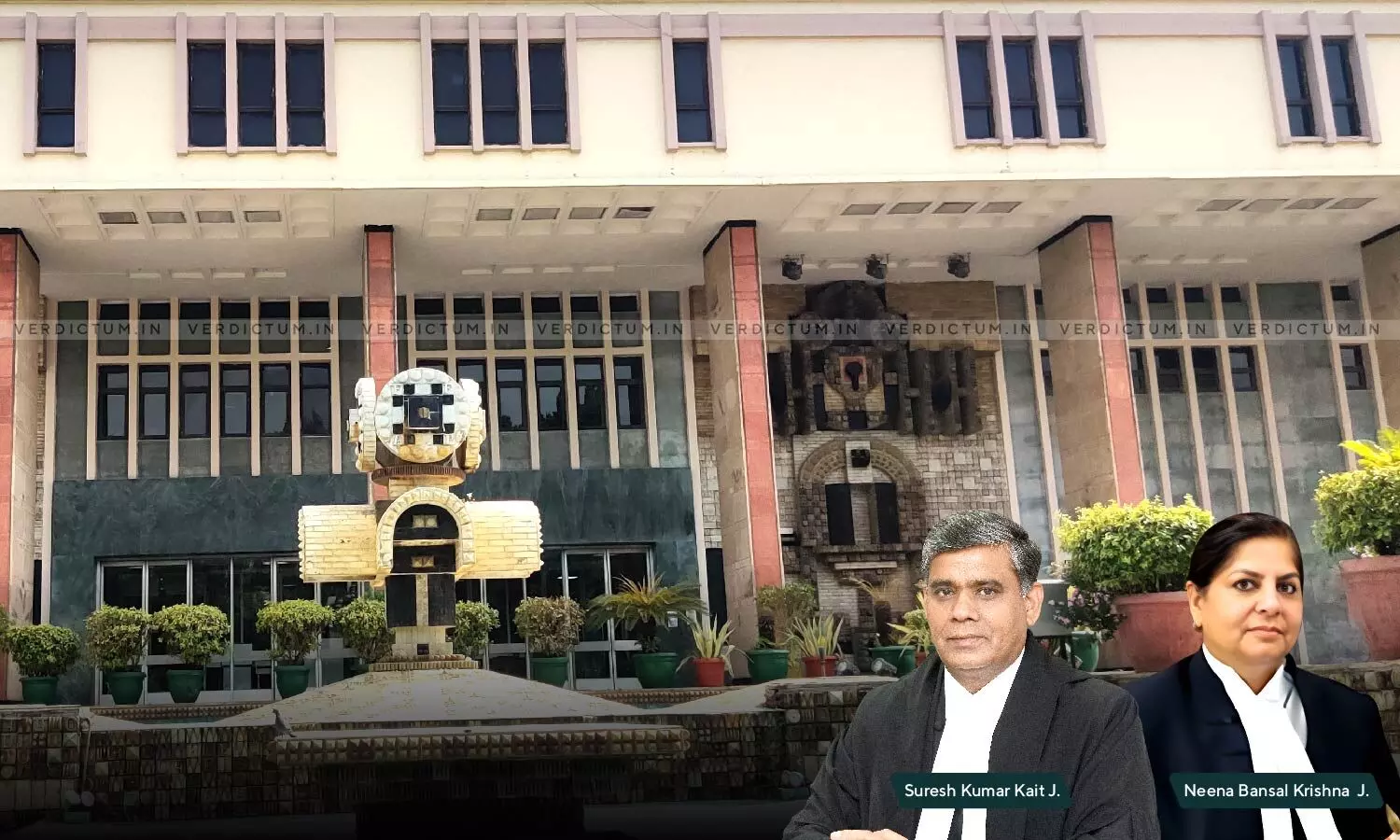
Arrears Of Maintenance Becomes Debt Once Definite Amount Becomes Payable, Can Be Recovered Through Civil Suit- Delhi High Court
 |
|A Delhi High Court Bench of Justice Suresh Kumar Kait and Justice Neena Bansal Krishna has observed that a husband's arrears of maintenance become a debt once the definite amount becomes payable to the dependents and can be recovered through a civil suit. In that context, it was said that "it is evident that while the maintenance per se does not have its roots in any contractual obligation and is thereby not a “civil debt”, but once it is determined and concretized by any Order or a Decree, it becomes a definite amount payable to the wife, children and parents, thus acquires the character of a “debt”, which can be recovered by way of a civil suit."
The Court observed that the final and settled position of law was that a Civil Suit for recovery of maintenance which acquires the character of a “debt” once a final Order is made under Section 125 CrPC, is maintainable.
Counsel Ankur Mahindra, among others, appeared for the appellant, while Counsel Kamal Kumar, among others, appeared for the respondent.
The Court was hearing an appeal filed by a minor son, against an order passed by the Family Court, by which the suit filed by his mother for the recovery of maintenance of Rs. 2,78,800 from the father was dismissed.
The main ground for challenge was with respect to the findings of the Family Court on the non-maintainability of a Civil Suit for recovery of arrears of maintenance granted under the Maintenance Order by the Metropolitan Magistrate as the only remedy available is to seek Execution of such an Order.
Analysing the intent behind Section 125 CrPc, the Court observed that, "Financial sustenance becomes a big concern for women and children who are completely dependent on the husband. Fighting court battles for maintenance in an already destitute state can turn out to be arduous to the victims, rendering the fight to be a futile exercise." In light of the same, the Court concluded that the objective of the statute was to prevent penury and vagrancy, which many a times, become a reason of commission of offence.
Subsequently, the Court placed reliance on S. Vanathan Muthuraja Vs. Ramalingam alias Krishnamurthy Gurukkal & Ors., to hold that as per the Rule of Construction, every presumption would be made in favour of the existence of a right and a remedy in a democratic set up governed by Rule of Law and the jurisdiction of the Civil Courts should be assumed except in cases of an express or implied bar.
In that context, the Court noted that, "no such express or implied bar on the jurisdiction of the Civil Court can be inferred from Section 125 Cr.P.C as the scope and purpose of this section is not to recover maintenance or dues, but prevent vagrancy. Since the object of Section 125 Cr.P.C embodies only the social obligation of a husband towards his wife, parents and children, it becomes a “debt” only when the amount payable to the dependant/wife is crystallized by way of a judgment or a decree. Once a definite amount becomes due and payable, it becomes a “legal debt”, therefore, the recovery of which can be sought by way of a Civil Suit."
In light of the same, the impugned judgment was set aside and the appellant was granted Rs. 2,05,000.
Cause Title: Vasu Bajaj v. Rakesh Bajaj
Click here to read/download the Judgment